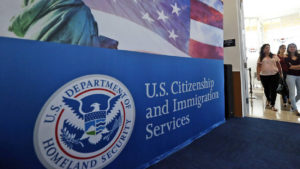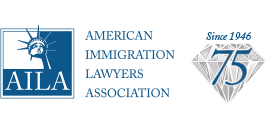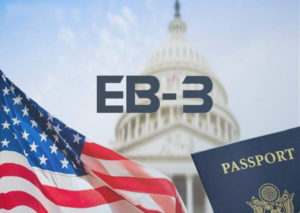 U.S. Citizenship and Immigration Services (USCIS) has issued new policy guidance following the November 10, 2021 settlement agreement discussed in our previous Shumaker Immigration Bulletin blog post. As of November 12, 2021, USCIS has updated its I-9 Handbook and is allowing certain automatic extensions of Employment Authorization Document (EAD) cards for H-4, L-2, and E-1 Dependent, E-2 Dependent, or E-3 Dependent (“E dependent”) visa holders.
U.S. Citizenship and Immigration Services (USCIS) has issued new policy guidance following the November 10, 2021 settlement agreement discussed in our previous Shumaker Immigration Bulletin blog post. As of November 12, 2021, USCIS has updated its I-9 Handbook and is allowing certain automatic extensions of Employment Authorization Document (EAD) cards for H-4, L-2, and E-1 Dependent, E-2 Dependent, or E-3 Dependent (“E dependent”) visa holders.
H-4, L-2, and E Dependent Spouses
The new guidance indicates that USCIS will also soon provide EADs incident to status for L-2 spouses, E-1 Treaty Trader dependent spouses, E-2 Investor dependent spouses, and E-3 specialty occupation professionals from Australia dependent spouses. Meaning, once the policy takes effect, L-2 and E dependent spouses will be authorized to work without applying for an EAD.
H-4, L-2, and E dependent spouses will qualify for an automatic extension of their valid EAD expiration if they:
- Properly file a Form I-765 EAD renewal application prior to expiration; and
- Continue to maintain H-4, L-2, or E dependent status beyond the expiration of the existing EAD as evidenced on Form I-94.
The expired EAD will considered valid until the earliest of the following periods:
- 10 days following expiration;
- Expiration of the H-4 / L-2 / E dependent nonimmigrant’s I-94 record; or
- When USCIS issues a final decision on the EAD extension application.

 Today, the American Immigration Lawyers Association (“AILA”) and its litigation partners achieved a historic settlement with the Department of Homeland Security (“DHS”) in Shergill, et al. v. Mayorkas, Case 2:21-cv-01296, 9/23/21 in the U.S. District Court for the Western District of Washington.
Today, the American Immigration Lawyers Association (“AILA”) and its litigation partners achieved a historic settlement with the Department of Homeland Security (“DHS”) in Shergill, et al. v. Mayorkas, Case 2:21-cv-01296, 9/23/21 in the U.S. District Court for the Western District of Washington. Beginning November 8, 2021, adult foreign nationals traveling to the United States by air, with limited exceptions, must demonstrate proof of full vaccination against COVID-19 and must also provide a negative COVID-19 test taken in the past 3 days.
Beginning November 8, 2021, adult foreign nationals traveling to the United States by air, with limited exceptions, must demonstrate proof of full vaccination against COVID-19 and must also provide a negative COVID-19 test taken in the past 3 days. Each month, the U.S. Department of State’s Visa Office (V.O.) compiles an update to the “waiting list” for immigrants from countries subject to the quota system under the Immigration and Nationality Act.
Each month, the U.S. Department of State’s Visa Office (V.O.) compiles an update to the “waiting list” for immigrants from countries subject to the quota system under the Immigration and Nationality Act.